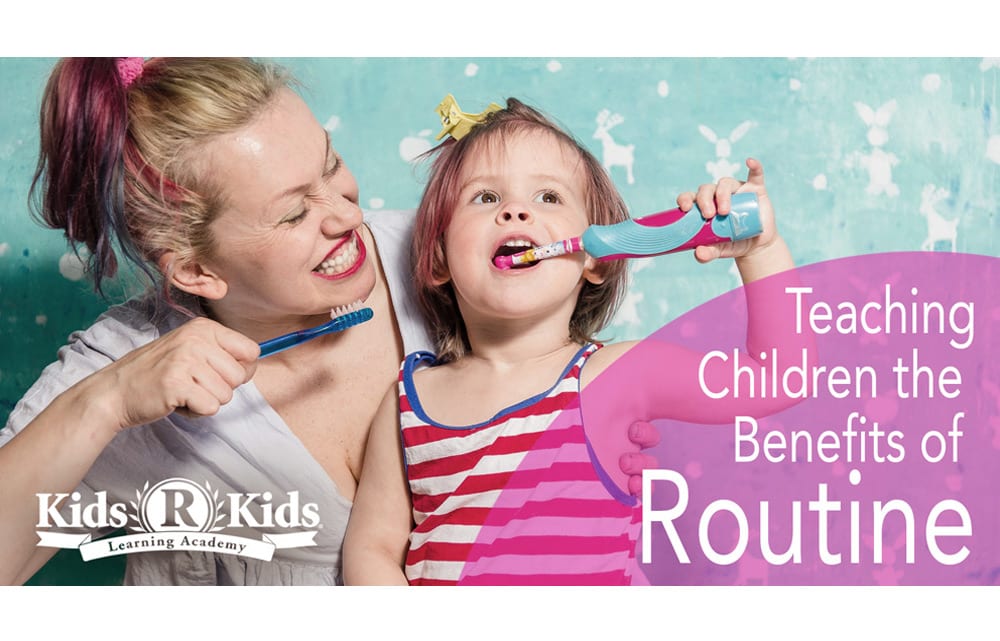Most kids would like to eat dessert before breakfast and sleep in past noon, but the benefits of a routine extend past childhood into adulthood. Starting your kids off early with a good routine can help them transition through the different stages of life, and prepare them for school, extra-curricular, and so much more.

Morning routines matter. As soon as the alarm goes off, to brushing teeth, packing bags, eating a healthy breakfast, and getting dressed and out the door, your child’s routine starts the second they wake up. Teaching them to make an orderly plan of when they will get ready in the morning will help prepare them for the day ahead.
Homework schedules. Between different classes and extra-curricular your child may be involved in, it’s always good to create blocks of time in which they get certain subjects and areas done. For example, if your child struggles with math, give them a 30-minute block (*adjust all times to your child’s needs and recommendations from teachers, etc.) to practice math problems, followed by 20 minutes of reading, or practicing an instrument, and so on. Once your child sees these blocks of times mapped out in small increments, they will feel less overwhelmed with things to do.
Bed time routines. Getting your kids to bed can sometimes be hard. Between finishing dinner, down time activities such as watching T.V., and everything in between, it can be hard to make sure kids are in bed by a certain time so that they can get the hours of sleep they need. With a set night time routine, your child can easily be aware of the time they spend doing each activity at night until they reach their bed time. For example, after dinner they might get 20 minutes of time to watch T.V., followed by brushing teeth and getting into pajamas, to time set aside with you for bedtime stories or general bonding before they finally tuck in to sleep. Whatever you and your child do before bed time, having incremental blocks of time in which those things get done will help them ease into a regular sleeping habit.
Routines don’t end on weekends. It’s easy for most kids to lose their sense of routine on weekends or holiday periods, but keeping a routine even during these times allows your child to easily transition between different days. Their wake-up time can be later than it would be on a school day, but make sure you do set one for them. They may eat different things for breakfast on weekends than weekdays, but make sure they do get in a full meal for every meal, whether they are going to school or not. Even setting aside specific times for them to play versus set times to read or help with chores, will help make sure your child isn’t losing track of time and making room for other things. Keeping a routine will not only help them keep their days in order, but help you keep track of their time and activities as well.
Routines are a healthy way for children to learn to become responsible adults, and when introduced at a young age, will allow them to be prepared for a bright future ahead.